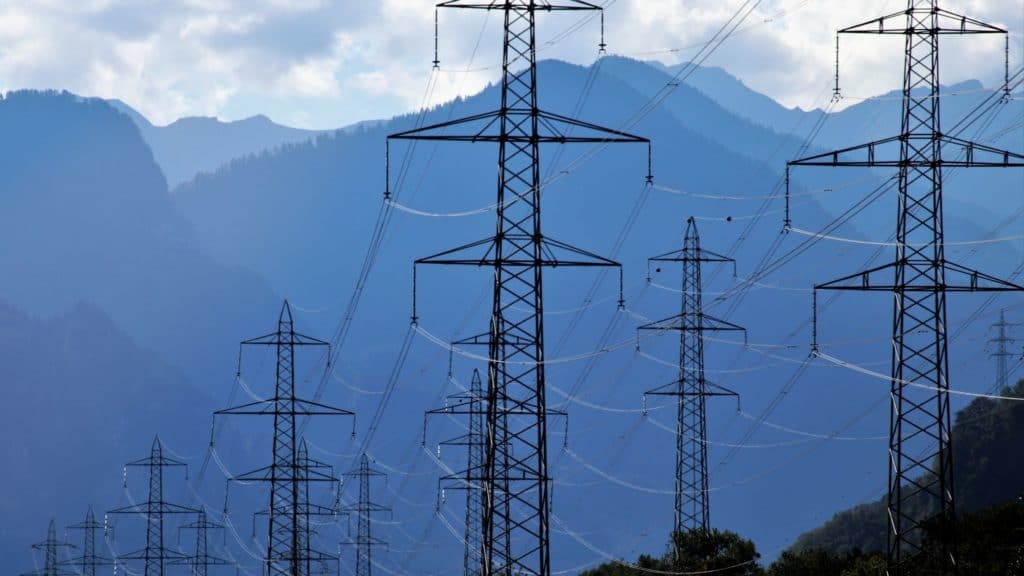News: The Commission has approved a draft block exemption regulation declaring certain categories of aid in the rail, inland waterways and multimodal transport sector compatible with the internal market on the basis of Article 93. The draft regulation can be accessed at: https://eur-lex.europa.eu/legal-content/EN/TXT/?uri=OJ:C_202404539 Introduction The EU’s Energy Efficiency Directive [EED] [Directive 2012/27, as last amended in 2023 by Directive 2023/1791] […]
State Aid Law
Blog
State Aid Uncovered Blog
In Lexxion’s State Aid Uncovered blog, Prof. Phedon Nicolaides publishes weekly critical analyses of recent State aid judgments and decisions. Each post presents the key points of a court judgment or EU Commission decision, places it in the context of similar case law or practice, assesses the underlying reasoning and highlights any inconsistencies or contradictions.
Guest contributions from other State aid experts will also be published on the blog at irregular intervals to complement the content of the blog posts.
- Electricity ×
23. July 2024 |
State Aid Uncovered
by Phedon Nicolaides
2. April 2024 |
State Aid Uncovered
by Phedon Nicolaides
Introduction Suppose a Member State subsidises the installation of solar panels on the roof of a corporate building situated at number 5 on Main Street. Is this a general measure because there is no other building in the whole country with the same address? Of course, it is not a general measure. The uniqueness of the address is irrelevant. Apart […]
13. February 2024 |
State Aid Uncovered
by Phedon Nicolaides
Introduction A public measure can be classified as State aid only when it is funded from state resources. Measures funded from the budgets of public authorities are always considered to be supported by state resources. However, measures not funded from state budgets may still be supported by state resources. This is because, rather counterintuitively, the concept of state resources covers […]
1. March 2022 |
State Aid Uncovered
by Phedon Nicolaides
Guaranteed supply of electricity at fixed prices to a state-owned network operator involves a transfer of state resources to the supplier. Guaranteed supply of electricity at fixed prices confers an advantage to the supplier. Introduction Member States are allowed to take measures to ensure the security of energy supplies. There is a variety of such measures: imposition of obligations on […]
9. November 2021 |
State Aid Uncovered
by Phedon Nicolaides
Funds used in compensation mechanisms mandated by the state become state resources Introduction The Court of Justice has stressed repeatedly that any resource over which the state can exercise control becomes a state resource, regardless of whether it is managed by a public authority or a private entity. Member States, however, keep inventing novel and complicated arrangements in which mandated […]
17. December 2019 |
State Aid Uncovered
by Phedon Nicolaides
A tax that is levied at one level of government and does not apply to products and activities at a different level of government need not be selective. Introduction A tax exemption normally confers a selective advantage, unless it is justified by the logic of the tax. Counterintuitively, a tax itself can be selectively advantageous if its scope is too […]
5. December 2014 |
Guest State Aid Blog
by Emma Linklater
On Wednesday 3rd December the GC found Spanish aid granted to coal power plants to secure supply to be compatible State aid (judgment not yet available in English). After a busy day at the EStALI Autumn Workshop yesterday (we’ll give you all the hubbub from that as well as the conference later today), the following is a preliminary post on […]
- Electricity ×
23. July 2024 |
State Aid Uncovered
by Phedon Nicolaides
News: The Commission has approved a draft block exemption regulation declaring certain categories of aid in the rail, inland waterways and multimodal transport sector compatible with the internal market on the basis of Article 93. The draft regulation can be accessed at: https://eur-lex.europa.eu/legal-content/EN/TXT/?uri=OJ:C_202404539 Introduction The EU’s Energy Efficiency Directive [EED] [Directive 2012/27, as last amended in 2023 by Directive 2023/1791] […]
2. April 2024 |
State Aid Uncovered
by Phedon Nicolaides
Introduction Suppose a Member State subsidises the installation of solar panels on the roof of a corporate building situated at number 5 on Main Street. Is this a general measure because there is no other building in the whole country with the same address? Of course, it is not a general measure. The uniqueness of the address is irrelevant. Apart […]
13. February 2024 |
State Aid Uncovered
by Phedon Nicolaides
Introduction A public measure can be classified as State aid only when it is funded from state resources. Measures funded from the budgets of public authorities are always considered to be supported by state resources. However, measures not funded from state budgets may still be supported by state resources. This is because, rather counterintuitively, the concept of state resources covers […]
1. March 2022 |
State Aid Uncovered
by Phedon Nicolaides
Guaranteed supply of electricity at fixed prices to a state-owned network operator involves a transfer of state resources to the supplier. Guaranteed supply of electricity at fixed prices confers an advantage to the supplier. Introduction Member States are allowed to take measures to ensure the security of energy supplies. There is a variety of such measures: imposition of obligations on […]
9. November 2021 |
State Aid Uncovered
by Phedon Nicolaides
Funds used in compensation mechanisms mandated by the state become state resources Introduction The Court of Justice has stressed repeatedly that any resource over which the state can exercise control becomes a state resource, regardless of whether it is managed by a public authority or a private entity. Member States, however, keep inventing novel and complicated arrangements in which mandated […]
17. December 2019 |
State Aid Uncovered
by Phedon Nicolaides
A tax that is levied at one level of government and does not apply to products and activities at a different level of government need not be selective. Introduction A tax exemption normally confers a selective advantage, unless it is justified by the logic of the tax. Counterintuitively, a tax itself can be selectively advantageous if its scope is too […]
5. December 2014 |
Guest State Aid Blog
by Emma Linklater
On Wednesday 3rd December the GC found Spanish aid granted to coal power plants to secure supply to be compatible State aid (judgment not yet available in English). After a busy day at the EStALI Autumn Workshop yesterday (we’ll give you all the hubbub from that as well as the conference later today), the following is a preliminary post on […]
- Electricity ×
23. July 2024 |
State Aid Uncovered
by Phedon Nicolaides
News: The Commission has approved a draft block exemption regulation declaring certain categories of aid in the rail, inland waterways and multimodal transport sector compatible with the internal market on the basis of Article 93. The draft regulation can be accessed at: https://eur-lex.europa.eu/legal-content/EN/TXT/?uri=OJ:C_202404539 Introduction The EU’s Energy Efficiency Directive [EED] [Directive 2012/27, as last amended in 2023 by Directive 2023/1791] […]
2. April 2024 |
State Aid Uncovered
by Phedon Nicolaides
Introduction Suppose a Member State subsidises the installation of solar panels on the roof of a corporate building situated at number 5 on Main Street. Is this a general measure because there is no other building in the whole country with the same address? Of course, it is not a general measure. The uniqueness of the address is irrelevant. Apart […]
13. February 2024 |
State Aid Uncovered
by Phedon Nicolaides
Introduction A public measure can be classified as State aid only when it is funded from state resources. Measures funded from the budgets of public authorities are always considered to be supported by state resources. However, measures not funded from state budgets may still be supported by state resources. This is because, rather counterintuitively, the concept of state resources covers […]
1. March 2022 |
State Aid Uncovered
by Phedon Nicolaides
Guaranteed supply of electricity at fixed prices to a state-owned network operator involves a transfer of state resources to the supplier. Guaranteed supply of electricity at fixed prices confers an advantage to the supplier. Introduction Member States are allowed to take measures to ensure the security of energy supplies. There is a variety of such measures: imposition of obligations on […]
9. November 2021 |
State Aid Uncovered
by Phedon Nicolaides
Funds used in compensation mechanisms mandated by the state become state resources Introduction The Court of Justice has stressed repeatedly that any resource over which the state can exercise control becomes a state resource, regardless of whether it is managed by a public authority or a private entity. Member States, however, keep inventing novel and complicated arrangements in which mandated […]
17. December 2019 |
State Aid Uncovered
by Phedon Nicolaides
A tax that is levied at one level of government and does not apply to products and activities at a different level of government need not be selective. Introduction A tax exemption normally confers a selective advantage, unless it is justified by the logic of the tax. Counterintuitively, a tax itself can be selectively advantageous if its scope is too […]
5. December 2014 |
Guest State Aid Blog
by Emma Linklater
On Wednesday 3rd December the GC found Spanish aid granted to coal power plants to secure supply to be compatible State aid (judgment not yet available in English). After a busy day at the EStALI Autumn Workshop yesterday (we’ll give you all the hubbub from that as well as the conference later today), the following is a preliminary post on […]










